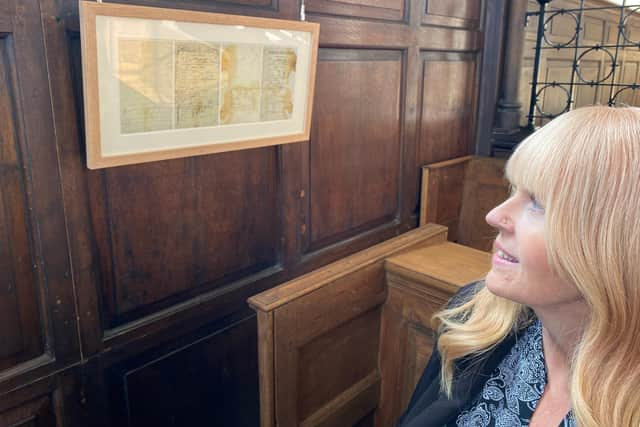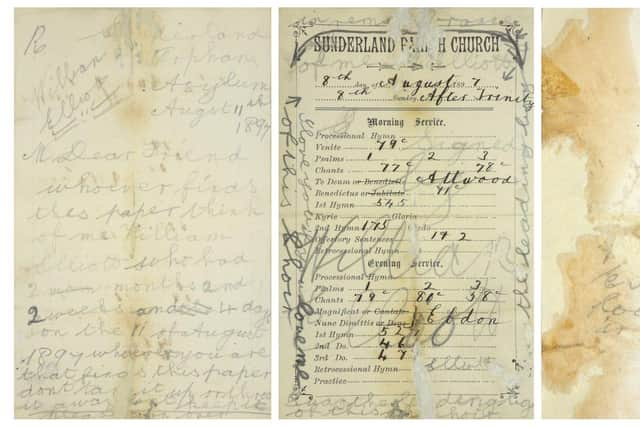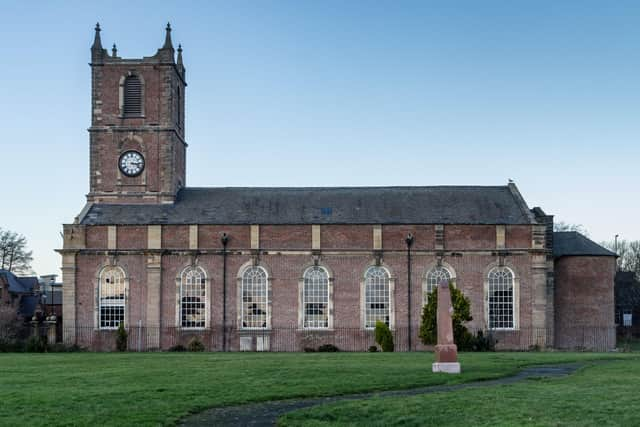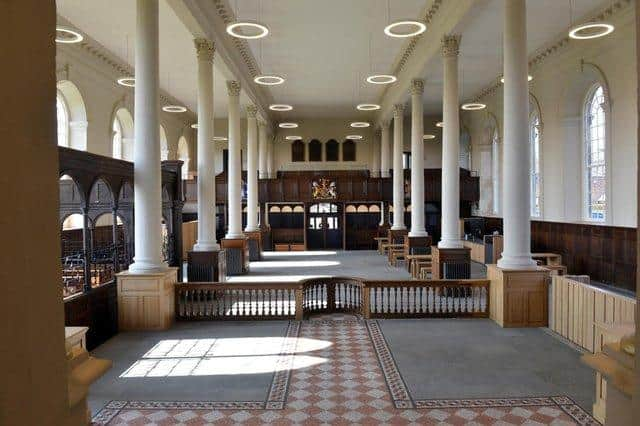Read the poignant letter by Sunderland orphan wishing to never be forgotten now discovered 125 YEARS later
and live on Freeview channel 276
Also known as Holy Trinity Church, workmen made the discovery whilst renovating the building which first opened its doors to worshippers nearly 300-years-ago.
The letter was discovered during the Georgian building’s recent £5m restoration to create Seventeen Nineteen – an events space named after the year the church first opened its doors.
Advertisement
Hide AdAdvertisement
Hide AdWritten in August 1897, when Queen Victoria was on the throne and the British Empire ruled large swathes of the globe, at that time the church had connections to the nearby Sunderland Orphan Asylum.
Signed William Elliot, the letter directed anyone who discovered it to keep it safe and “in remembrance of me”.
William, who was 13 at the time, appeared to have written the letter as he knew his time at the orphanage was coming to an end as he was due to be discharged on his 14th birthday.
To decipher the letter, historical conservationists had to remove over a century of dirt and dust to access the hidden message which read: “Dear friend, whoever finds this paper think of William Elliott, who had two months, two weeks and four days on the 11 of August 1897. Whoever you are that finds this paper don't tear it up or throw it away, keep it in remembrance of me, W. Elliott.


Advertisement
Hide AdAdvertisement
Hide Ad"I was the leading boy of this choir - I love you if you love me."
More than a century on, William will now see his wish granted as his letter, which was wrote on the service booklet, has been encased and takes pride of place above his pew.
Research by Seventeen Nineteen volunteers revealed William’s father was Chief Officer Thomas Duncan Elliott who was sailing on the vessel Skyros when he was tragically washed overboard in 1887, when William was just three-years-old.
William's mother, Sarah Ann-Elliott, was widowed with four children and, although the family appears to have been fairly comfortable until Thomas’ death, by 1891 Sarah was working as a dressmaker to keep the family afloat.


Advertisement
Hide AdAdvertisement
Hide AdAfter losing his father, William was eligible for admittance to the orphanage and, presumably to help his mother make ends meet, was accepted in 1892.
He left the orphanage on October 29, 1897, the day of his 14th birthday and just weeks after he wrote his letter.
Seventeen Nineteen’s Centre Manager Tracey Mienie said: “His letter has touched us all. He was clearly very aware that his time at the orphanage – and in the choir – was ending and I think apprehension at what his future may hold comes across in his words.”


Although most boys from the orphanage were destined for a life at sea, William’s high standards of literacy earned him a place with local solicitor, Mr Herbert.
Advertisement
Hide AdAdvertisement
Hide AdAfter 1901, there’s little record of William, although somewhat unnervingly, alongside his letter, sits a wooden plaque commemorating those men of the parish who perished in the Great War. Inscribed on the plaque is a certain W.Elliot.
Whatever became of William, he can now rest assured he has no longer been forgotten.
A message from the editor:
Support your Echo and become a subscriber today.
Enjoy unlimited access to all of our news and sport, see fewer ads, experience faster load times, test your brain with daily puzzles and get access to exclusive newsletters.


Comment Guidelines
National World encourages reader discussion on our stories. User feedback, insights and back-and-forth exchanges add a rich layer of context to reporting. Please review our Community Guidelines before commenting.
